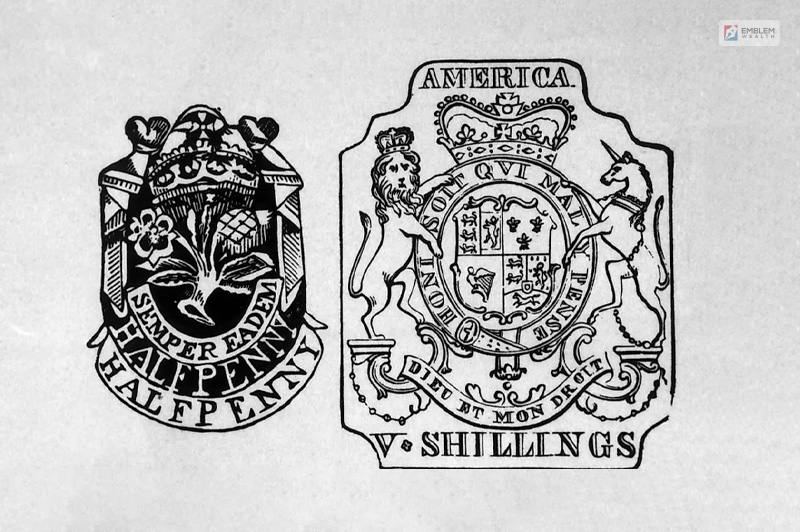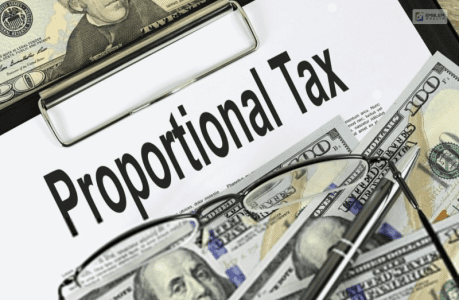What Is The Stamp Tax Act Of 1765? A Comprehensive Guide

It was on 22nd March 1765 when the Stamp Act came into existence. It was passed by the British Parliament to help pay the British army that was stationed in different colonies. To answer “what is the Stamp act” simply, it needed the colonists to pay taxes that were represented in the form of stamps.
Taxes were presented on multiple documents, playing cards, and papers. Since it was a direct tax that the British government imposed, it could not be imposed without colonial legislatures’ approval. Let’s know more about the tax that changed the way in which the British taxed colonies.
A Little Background Of The Stamp Act
The victory of Britain in the Seven Years’ War, which is often regarded as the Indian and French War, resulted in immense financial expense. At the time of war, the national debt of the country almost doubled. From £72,289,673 in 1755 to somewhere around £129,586,789 in 1764.
Expenses post-war were predicted to go higher due to the Bute ministry’s decision to keep ten thousand pounds in the American colonies. The key reason why such a huge force was retained was due to the demobilization of the army, which almost made 1,500 people jobless. Hence, this made it politically prudent to introduce, what is the stamp act today.
What Were The Consequent Reactions Following The Act?
The avalanche of colonists’ protest was unexpected as they were determined to nullify the Stamp Act. In order to do this, they outright refused to use the stamps, along with being involved in riots and burning stamps. Let’s check out the different reactions that came out as a result of the 1765 Stamp Act.
- King George III’s imposition of tax on American colonies…
The act included licenses, certificates, bonds, and other official documents with mundane items like playing cards and parchment paper. The British Parliament stated that the American colonies had to offset the sums which are needed for their maintenance. The intention was to use the extra tax money to pay Great Britain’s war expenses.
- A lot of American colonists were not willing to pay taxes…
When somebody wants to know ‘what is the Stamp Act’ in detail, it is worth mentioning the reaction of American colonists. They were not only angered by the clauses of the act but also decided to oppose it. Due to the sheer distance between the colonies and London, it was impossible to send a direct appeal.
Benjamin Franklin and other prominent people who were like-minded about independence argued that the Parliament had no authority to impose internal taxes. Everywhere flared public protest, which attracted enormous attention from all over the world. A number of tax commissioners got scared and quit their jobs, while others failed to collect any money.
- The Stamp Act gave birth to the American Separatist Movement…
If the Stamp Act of 1765 had been imposed by the colonial representatives along with their consent, it would have been well-accepted. However, the emerging independence sense of colonists increased their sense of indignation. They felt like they were being subject to injustice. The colonists’ minds were mostly nurtured by their homeland and justified by several interactions.
Let’s consider a situation where the taxes have been submitted. Even then, there would be a doubt that the negative impact of the tax would trouble the free press. Scholars stated that the American separatist movement attracted a great impact as a result of protesting against the act.
What Is The Stamp Act’s Aftermath & How It Impacted Constitutional Protections?
The violence of the act that erupted during the time stayed neutral in the memory of this young country. Those who crafted the Constitution were aware of including safeguards against freedom usurpations. Hence, the violence could simply breed for such acts. One can find the constitutional amending regulations in Article 5. But what’s that?
This regulation allowed them to make changes in the laws without having to restart a violent revolution. When it comes to securing freedom of speech, the First Amendment is important. It also had the right to assemble peacefully and make petitions to the government.
Legacy Of The Stamp Act: Britain Repealing It
After the news of violence and back-to-back protests against the government officials and tax collectors, there continued a heated debate in the Parliament. For some people, it felt like they could not repeal this act because it would simply make it harder to administer the colonies. Others thought that the tax must be lifted as it was an unfair one.
Benjamin Franklin became the Parliament representative as he continued to become the colonists’ voice. It was his idea to testify to the colonist’s unwillingness to pay only the internal taxes, not the external ones. If you ask what is the stamp act, you might also want to know about internal and external taxes.
- Internal taxes referred to taxes derived from activities that took place inside the colonies, like the Stamp Act.
- External taxes were those taxes imposed on trades, imports, and exports.
His words made a long-lasting impact on King George III, and he repealed the act. On the same day, there was the “Declaratory Act” passed by the Parliament. Although the colonists were relieved now that the Stamp Act was repealed, they were unaware that the conflicts would still continue.
Final Words
So, this was all about your question, “What is the Stamp Act?” The end of this act had no impact on ending the conviction of the Parliament. It continued imposing taxes on the colonists in multiple other ways. The only thing that changed was the suffering of American colonists.
Moreover, the issues that were raised continued for the next 10 years and led to the Revolutionary War. Ultimately, Americans achieved independence. The Act had its share of economic burden on the nation, which took years to get balanced.
So, that was all about the Stamp Act of 1765. Let me know your thoughts on this by sharing your comments below!
Continue Reading:

























Leave A Reply